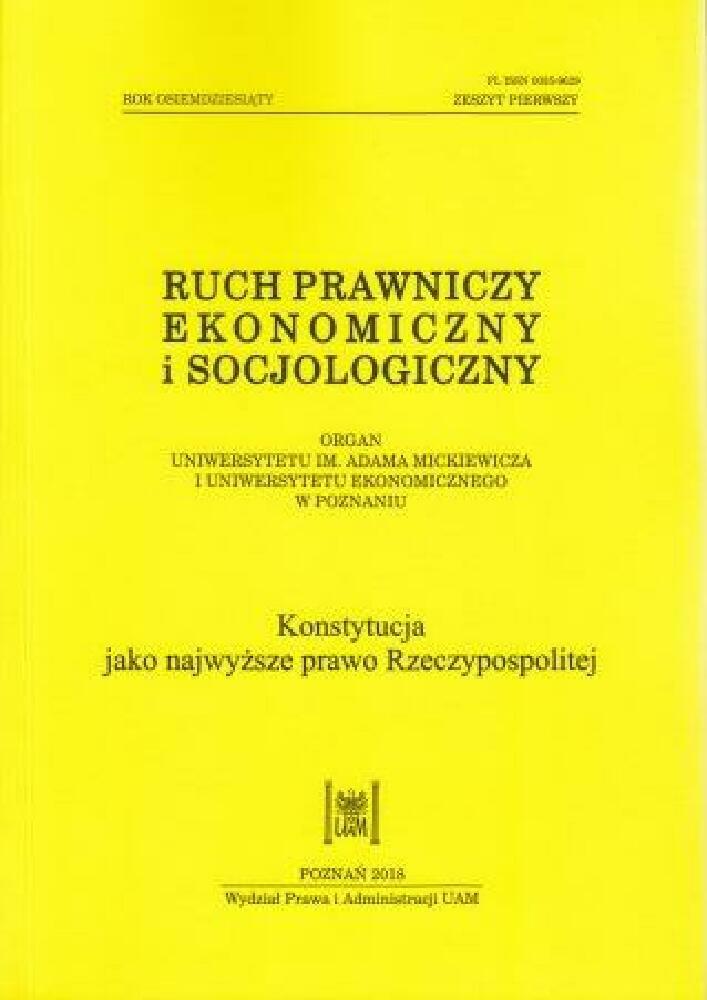Abstract
The article seeks to answer the question whether it is necessary to revise the charter of rights of an individual included in the Constitution of the Republic of Poland of 1997. The starting point is the reflection on the topicality of the Basic Law from the perspective of 20 years of its applicability. The conclusion is that the Constitution meets the criteria of modern constitutionalism uponwhich the systems of democratic states are based. The reform consisting in a thorough revision of the existing Constitution or in replacing it with a new basic law would have to be justified by the fulfilment of the ‘constitutional moment’ conditions, in line with Bruce Ackerman’s understanding of the term. The discussion devoted to the constitutional charter of rights focuses on the
assessment of how the fundamental rights charter fulfils the criteria which guided its drafting, namely: the adequacy to the assessment of the relationship between the individual and the community that prevails in society; the compliance with international human rights standards; the
universality of content; the jurisprudence. They lead to the conclusion that the charter of rights contained in the Constitution is an example of a modern regulation of the legal situation of an individual, consistent with the requirements of contemporary constitutionalism. However, this general assessment does not mean that it is pointless to consider the possibility or the need to refine the detailed solutions, or supplement the list charter, that could be made within the framework of the revision of the Constitution when this proves necessary. This thesis is illustrated with selected examples.
License
Copyright (c) 2018 WPiA UAM

This work is licensed under a Creative Commons Attribution-NonCommercial-NoDerivatives 4.0 International License.




